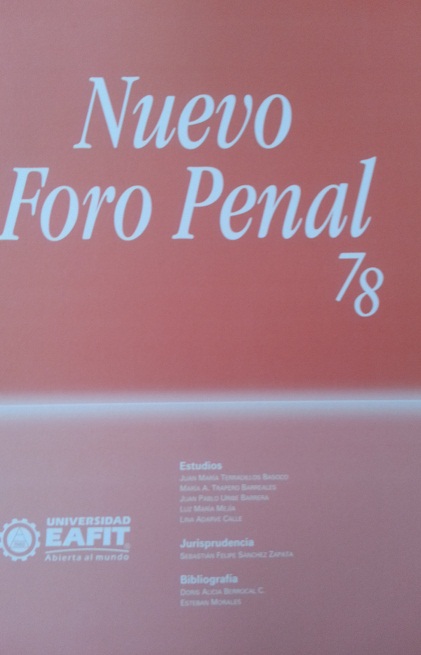The weakening of the principle of criminal legality in the control of constitutionality of the colombian Constitutional Court
Main Article Content
Keywords
Principle of legality, guarantee, constitutional jurisprudence.
Abstract
The PoliticalConstitution of Colombia is endowed with an extensive catalog of fundamental rights, guaranteed judicially, which are binding on all the state powers even for the legislative one, which are expressed through constitutional legal norms that prevail over the other ones of the legal system, this model of constitution determines the option for a guarantist criminal law, which means a minimum intervention criminal law, for whose consolidation is fundamental the strengthening of the principle of legality, as a limit or guarantee against the exercise of the punitive power by the state.
In order to establish whether the decisions of the constitutional control of the Colombian Constitutional Court are contributing to strengthen this guarantee function of the principle of legality, and consequently are helping to the consolidation of a minimum intervention criminal law in Colombia, or if instead , they are promoting their weakening, and therefore the expansion of criminal law, this paper took care of analyzing them, using as the principal theoretical reference the theory of the guarantist criminal law by Luigi Ferrajoli, that was complemented with the main manifestations of the principle of legality coined by the doctrine, as the review criteria of the jurisprudence: the reserve of law, the non-retroactivity of the unfavorable criminal law, the written norms, the prohibition of analogy in malam partem, the legal certainty and the white criminal types.

